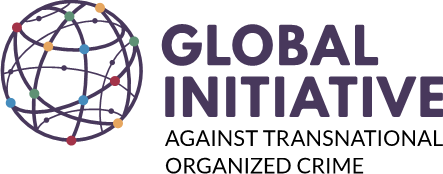Background to the Research
Since 2019, the number of migrants and refugees irregularly crossing the English Channel has surged – these journeys are facilitated by human smuggling networks. These irregular journeys pose significant protection risks to those on the move, as evidenced by the high number of deaths recorded.
While irregular migration across the English Channel has received significant media attention, in-depth research exploring the dynamics of the human smuggling networks underpinning this movement is limited. Key drivers behind the increase in irregular maritime movement across the English Channel – including instability in prominent countries of origin – are unlikely to decrease in the near future, suggesting that better understanding dynamics across this route is key.
This research explores the current dynamics of the human smuggling networks underpinning irregular maritime movement across the English Channel from France to the UK. It seeks to outline the evolution of human smuggling across this route, the current dynamics of human smuggling networks operating across this route (using a range of analytical entry points, including analysis of pricing data, payment modalities, and violence reported on the journey), and considers how this evidence base can be drawn on to inform policy responses.
The research will be conducted through a mix of extensive literature review, together with engagement with a wide range of relevant stakeholders in the UK, France and in major countries of original of migrants and refugees from Central Asia and North and sub-Saharan Africa. Interviews will be coordinated with stakeholders including law enforcement bodies, civil society organisations working with migrants and refugees, members active within the illicit economy, and migrants and refugees themselves. This research is self-funded – The Global Initiative Against Transnational Organized Crime (GI-TOC) has identified this to be a priority area to build the evidence base around.
Scope of work
Data shows that the majority using the Channel crossing are Afghan nationals currently, and experiencing the significant risks that irregular maritime crossings carry. In order to ensure that the voices of those on the move are at the centre of our work, we are looking to engage with Afghan diaspora networks in the UK, to ensure we gain from the perspective of those who have recently undertaken this journey.
At the first stage of the research, AISS is conducting interviews with Afghans currently present in the UK who have crossed the Channel by boat (either with or without the use of smugglers) in the last 5 years. Interviewers will use a guided questionnaire to cover topics including:
basic (anonymous) demographic information, including gender, age, nationality and ethnicity
details on journey from departure to final destination
motivations for crossing the Channel,
criteria for selection of smuggling facilitator,
information on price and payment methods,
experience during the journey
subsequent asylum/immigration decisions and present status.
This project commenced in November 2022 and it is funded by GI-TOC.
Background to the GI-TOC

The Global Initiative Against Transnational Organized Crime is a leading think-tank for the study of organized crime and illicit trade headquartered in Geneva, Switzerland. The GI-TOC has coordinated extensive research exploring irregular migration, human smuggling, and intersections with human trafficking across a range of countries.
